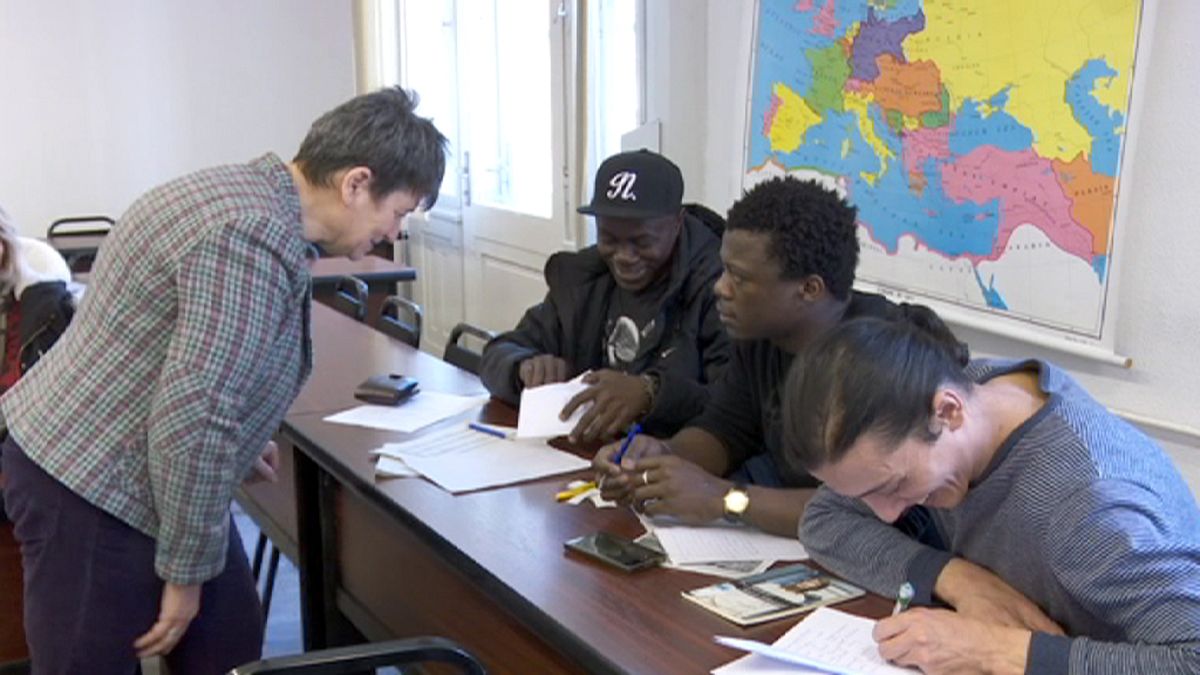Registered refugees in Hungary are getting English lessons to help them integrate in Europe. Every Saturday around 40 of them gather at the Central
Hungarian private university offers English lessons for registered refugees. Every Saturday around 40 of them gather at the Central European University in Budapest to attend a 13-week course. They come from different parts of the world: Somalia, Syria, Iran, Afghanistan, Pakistan, or Sudan.
One of the students is Basil Hararah., a Palestinian man from Gaza, who decided to come to Europe after his house was destroyed.
“The last war in Gaza was in the middle of 2014 and they destroyed most of the precious things I had, so I had to leave,” he says.
Basil finds these courses very useful as he wants to study here and work as an engineer. He has English lessons, a course on Human Rights, academic tutoring in Maths, and will have courses on CV-writing, applying for a job and also a “short guide to Hungary”. He is looking forward to getting to know the Hungarian way of life.
According to one of the organizers this unique course called OLIve can help the refugees a lot, so they are already planning the next one.
“They get here, it’s very difficult, they get very little governmental support, very little in the way of education or language education or practical help, and so we see this as an opportunity to really help them find their way,” says the Open Learning Initiative’s Prem Rajaram.
The course is free and the teachers are volunteers. They did not need much persuading to spend their weekends helping these people.
“We talk a lot about helping the refugees and I always totally agreed on that, as I know how terrible the situations they are coming from are. I thought that it is not enough to help with words, but let’s do something. I am a teacher, I can give this and I am giving this to them,” says teacher Eszter Timár.
Although Basil wanted to start his new life in Belgium, the Dublin II agreement meant he was forced to come back to Hungary where he was first registered in the EU. But he is starting to like it.
“All the rumours about Hungary were that it is not a good place to live in, but now, as I am, like, more than seven months here, I think it’s not that bad. I can start here. It’s safer than Gaza at least,” smiles Basil.
He says that one of the best things in this course is that he can get to know people in a country where he has nobody. It is the start of a new network of friends for his, hopefully happy, new life.


